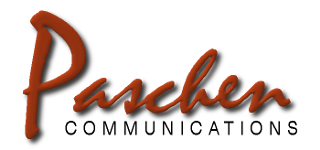Blog
GDPR is a set of rules that any company that has an 'electronic presence' in the EU must follow. It regulates how you must handle user data - like log-in data, and any other personal data of a user. It doesn't matter if your company is based within the EU, the rules can apply to businesses located outside the EU. If you have a web site that people from the EU might use, then you need to follow GDPR rules. Additionally, there are rules that are set by Germany, Russia, Italy, and California. Plus, a good number of the GDPR and other privacy rules are just good for the user ... and should be good for your business as well.
Joomla introduced some core systems that make following the GDPR much easier; however, it is not a 'plug and play' type of solution. It requires quite a bit of configuration to get GDPR compliance with the core Joomla systems. There are several Joomla extensions that have been released to make that process a bit easier, but knowing which ones to use and how to properly configure them can take some effort.
And just because you don't 'target' users in the EU doesn't mean that you aren't obligated to follow the rules. Your web site likely is accessible in the EU (and all around the world), so you need to be following those rules (unless you have intentionally blocked access from those countries*).
We can help you with that process. Because we set-up GDPR and other rules-compliant configurations on sites regularly, we can help get your site GDPR/CCPA/EUGH/etc compliant without you needing to worry about all those details. You can focus on your core business-building task list.
Get in contact with us today to find out how we can make your site compliant with the various privacy rules.
*NOTE: If your web site is hyper-local (i.e. only needing to serve your local area, or within your own country), we can set-up restrictions to block access from the EU or other countries where you don't want people to visit from.)
- Details
We have been providing Joomla management services for over 15 years. That includes all aspects of running and managing a Joomla web site.
The Joomla 3 CMS is reaching end of life in August 2023 (and Joomla 5 is already in the beginning stages). If you have a Joomla 3 web site you need to get your site updated soon to ensure that it remains secure. But moving to Joomla 4 is NOT just a quick update. It requires a very careful plan to ensure that all your systems can handle Joomla 4 and then the migration needs to be done in a way that you don't break your site.
We have both the experience and the tools to ensure that your site is migrated with no down-time.
Also, this is a great time to make some updates to your template or the functionality of your site (you could save time/money if you make changes at the same time you migrate).
If you need your Joomla site migrated to Joomla 4 use the Contact Us link above or the home page button to schedule a free consultation to connect with us and help you get your site updated so it remains secure.
- Details
Many small- to medium-size companies (and even some large ones) tend to follow the allure of using lots of online services in order to provide their online functionalities. This is a GREAT way to save money (sometimes), and it can sometimes make it possible to do very complex things with only a few clicks of the mouse. However, there are a number of potential pitfalls and even some serious security risks for your company when you use these services.
Types of online services
Exactly what are we talking about when we reference 'online services'? It involves ANY processing or storing of data by an entity other than your own. That could be things like eCommerce/shopping carts, mapping/location services, email newsletter systems, to even just storing files in 'the cloud' (i.e. Google Drive, One Drive, etc.).
With each of these services that you use, you take on challenges and even legal risks just by opening an account with the service.
Here are a few of the potential challenges/risks that you may already be facing.
- Details
